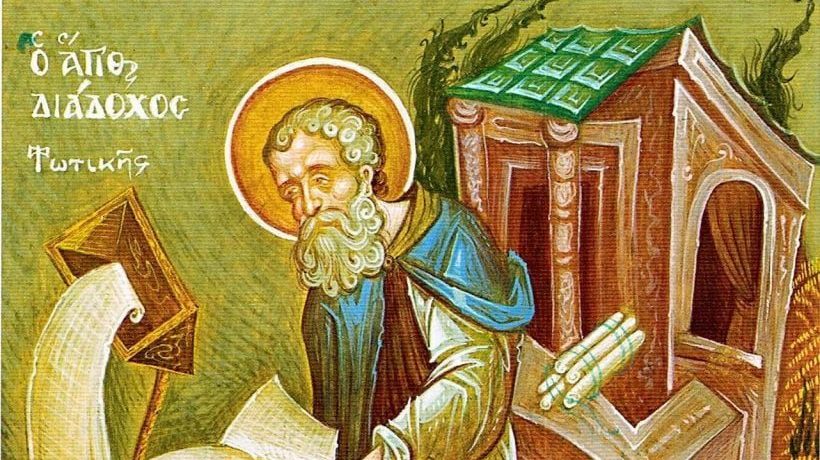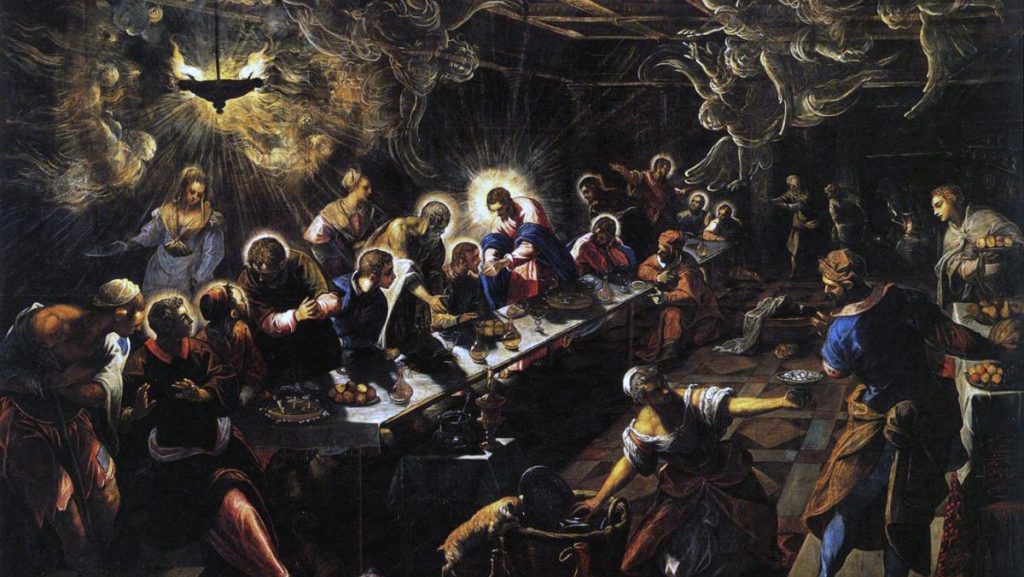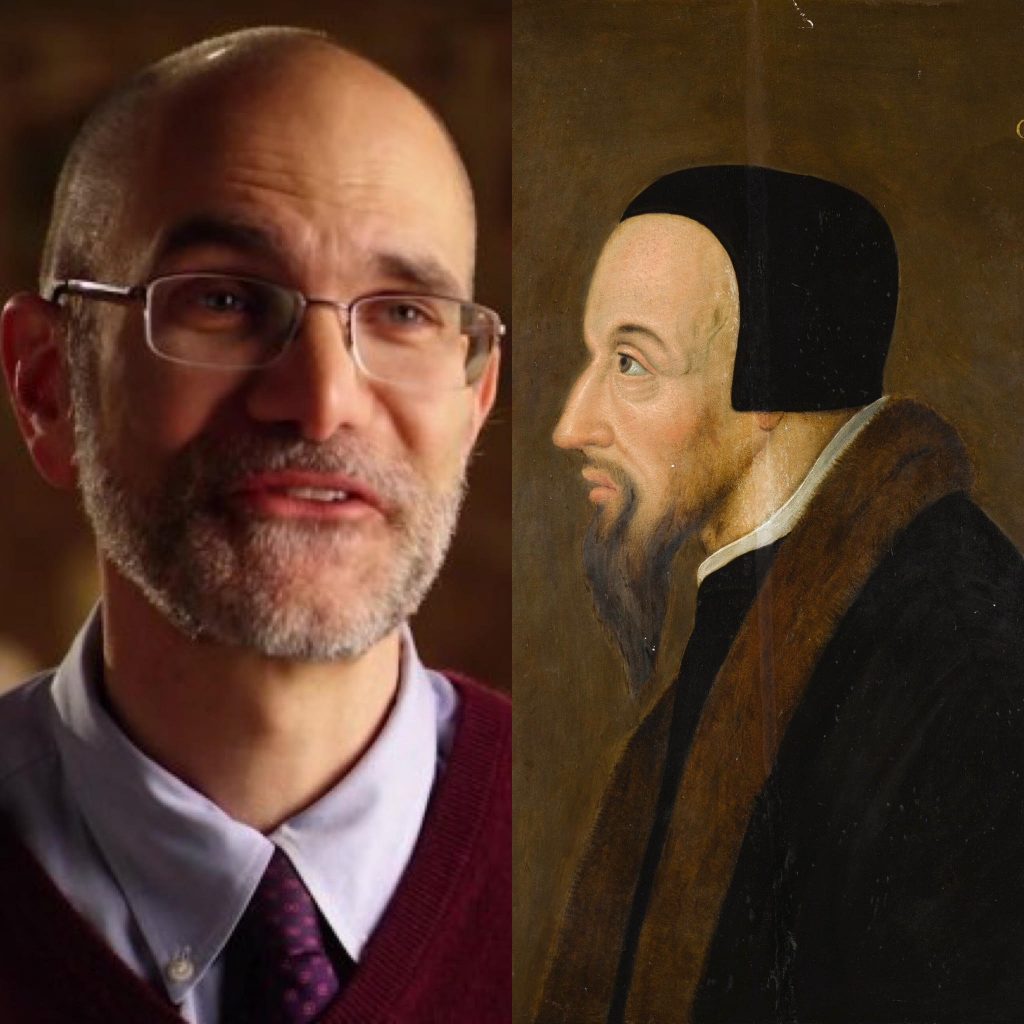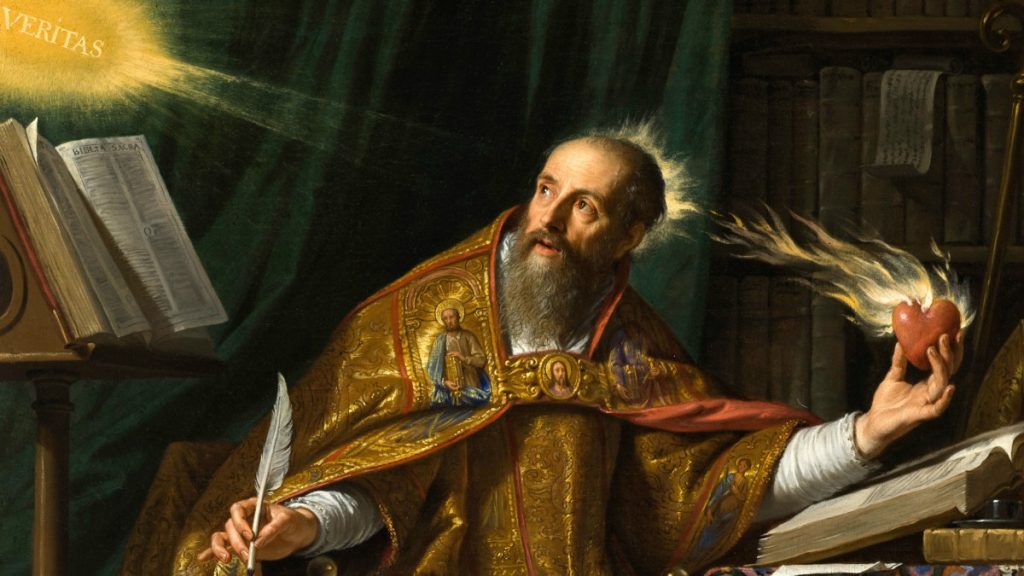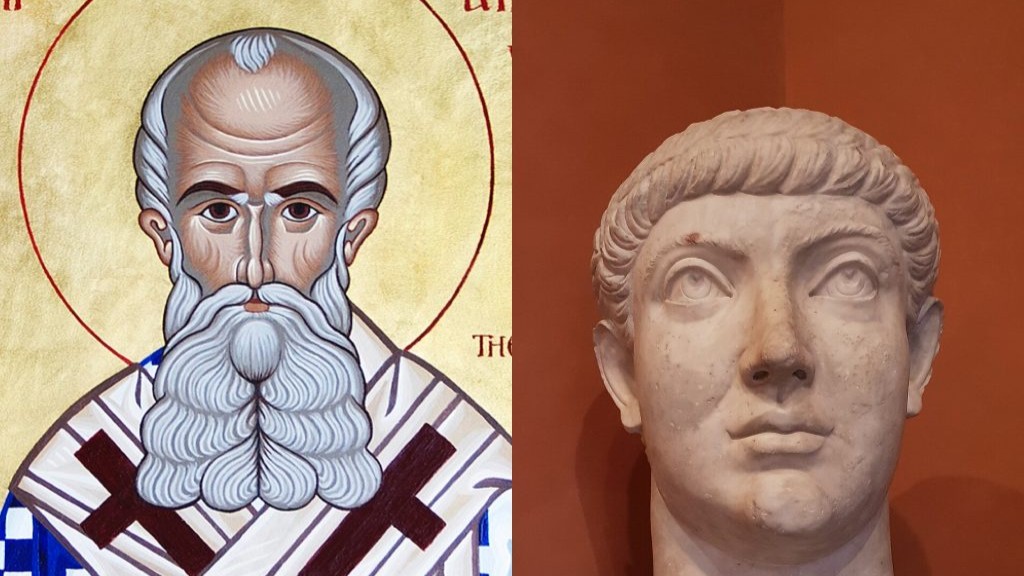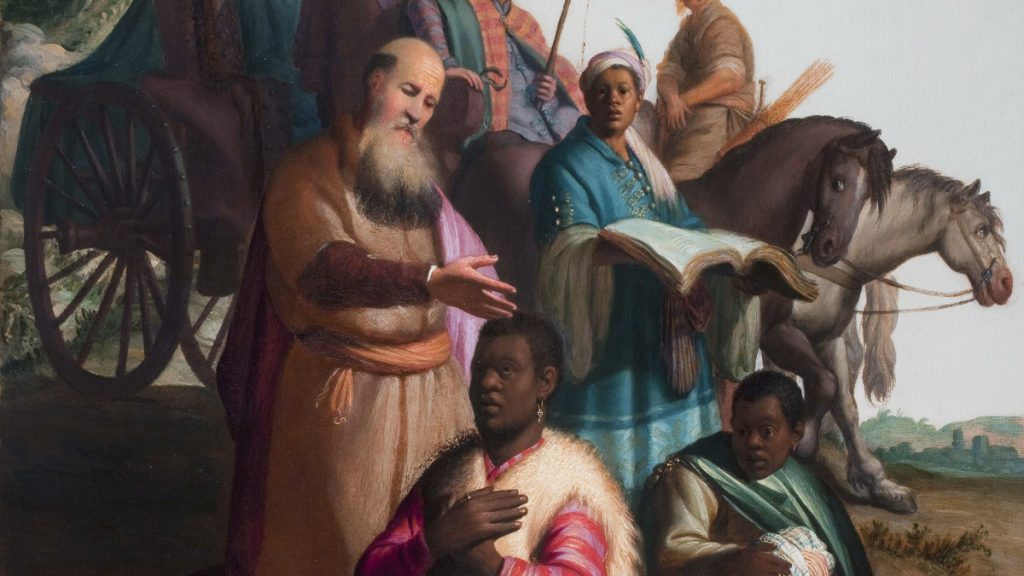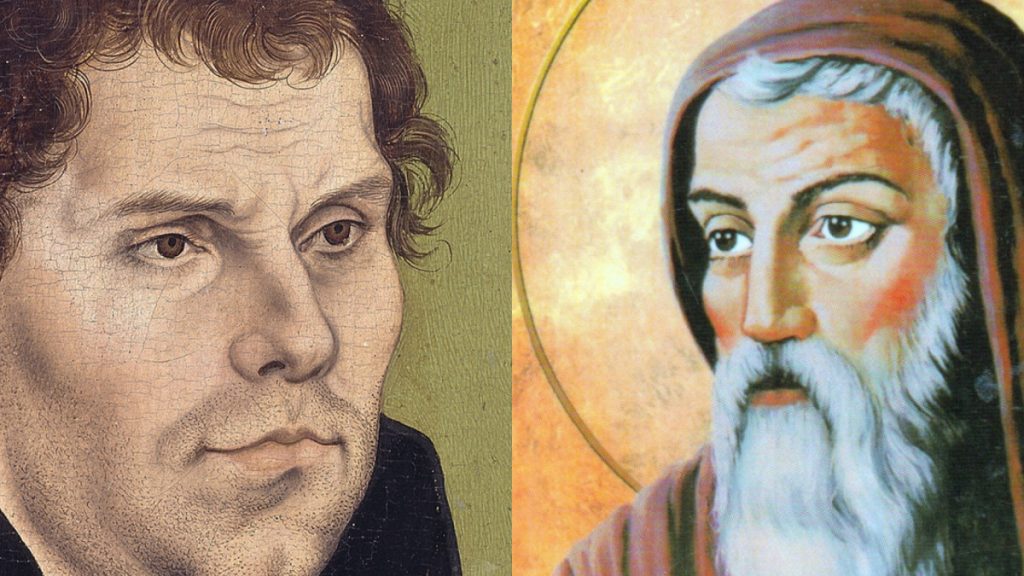(Updated July 17, 2025)
This Author Quote Archive collects pertinent quotes from the Church Father, St. Caesarius of Arles.
Next to each quote are the Topic Quote Archives in which they are included.
This Quote Archive is being continuously updated as research continues. Quotes marked with “***” have not yet been organized into their respective Topic Quote Archives.
Sermons
St. Caesarius of Arles, Sermon 1 : The Humble Advice of a Sinner, Addressed in General to All Saints and Priests (522)
(§12)1
No woman should take potions for purposes of abortion, because she should not doubt that before the tribunal of Christ she will have to plead as many cases as the number of those she killed when already born or still conceived. Is anyone unable to warn that no woman should accept a potion to prevent conception or to condemn within herself the nature which God wanted to be fruitful? Indeed, she will be held guilty of as many murders as the number of those she might have conceived or borne, and unless suitable penance saves her she will be condemned to eternal death in hell. If a woman does not want to bear children she should enter upon a pious agreement with her husband [to abstain], for only the abstinence of a Christian woman is chastity.
St. Caesarius of Arles, Sermon 10: On the Catholic Faith
(§3)2
Let no one commit theft or murder or adultery or perjury, or bear false witness. Every man should honor his father and mother that he may live long on earth. Let him cherish God more than himself and love his neighbor as himself. If anyone has committed any of the aforementioned offenses, he should quickly amend his life, make his confession, perform true penance, and then his sins will be forgiven him. If you are willing to do what I have suggested, brethren, you will merit pardon for your sins and obtain eternal life: with the help of our Lord Jesus Christ, who lives and reigns world without end. Amen.
St. Caesarius of Arles, Sermon 13: A Sermon Necessary in Parishes
(§3)3
As soon as some infirmity overtakes him, a sick man should receive the Body and Blood of Christ, humbly and devoutly ask the presbyters for blessed oil, and anoint his body with it. Thus will be fulfilled in him what we read: “Is anyone among you sick? Let him bring in the presbyters, and let them pray over him, anointing him with oil. And the prayer of faith will save the sick man, and the Lord will raise him up, and if he be in sins, they shall be forgiven him” (Jas. 5:14-15). See to it, brethren, that a man hastens to the health and the remission of his sins.
St. Caesarius of Arles, Sermon 16: The Qualities of Good and Bad Christians
(§4)4
Behold, brethren, we are showing you the qualities of good Christians and of bad. Therefore, imitate those whom you see are good; those whom you know are evil, reprimand, reproach, and rebuke them so that you may have a double reward for your own progress and their amendment. May those, then, who are good, chaste, sober, humble, and gentle, persevere with God’s help in their good works; may those who do evil correct themselves at once before their souls depart from this life. If they die without repentance they do not enter into life, but are cast into death. From this punishment may the good Lord deign to free us, who, together with the Father and the Holy Spirit, lives and reigns world without end. Amen.
St. Caesarius of Arles, Sermon 110: St. Jerome on the Censers of Core and Dathan
(§1)5
If the doctrine of the Church were simple and not surrounded by the assertions of heretical doctrines from without, our faith could not appear so clear 144 | 145 and well-verified. However, due to the fact that the attack of objectors besets Catholic doctrine, our faith does not become paralyzed through inactivity, but is perfected by much exercise. For this reason, the Apostle used to say: “There must be factions, so that those who are approved may also be made manifest among you” (1 Cor. 11:19). In other words, the altar must be surrounded by the censers of heretics, so that the difference between the faithful and unbelievers may become certain and clear to everyone. When the faith of the Church begins to shine like gold and its preaching glitters to all that behold it like silver that has been tried by fire, then the words of heretics will be despised with greater shame and disgrace because of the worthlessness of their dull brass.
St. Caesarius of Arles, Sermon 153: On Christ’s Words, “If You Will Enter Into Life, Keep the Commandments”
(§§3-4)6 ***
(§3) Therefore, listen to the Apostle when he calls you rich: “Charge the rich of this world not to be proud” (1 Tim. 6:17). Pride is the first worm of riches; it is a harmful gnawing worm which gnaws at everything and reduces it to ashes. “Charge the rich of this world not to be proud, or to trust in the uncertainty of riches” (1 Tim. 6:17), lest perchance you go to sleep as a rich man and arise a poor man. Perhaps someone will take your gold away from you: will anyone be able to take God from you? What does a rich man have if he does not possess God? And what does a poor man not have if he possesses God, for He says: “Charge them not to trust in the uncertainty of riches, but in God, who provides all things” (1 Tim. 6:17)? For this reason the rich: “Should give readily, sharing with others, and thus providing for themselves a good foundation against the time to come, in order that they may lay hold on the true life” (1 Tim. 6:18-19). I have admonished the rich, but do you who are poor also listen. Do you also spend out of what you possess, and do not be covetous; give your wealth, and curb your passions.
(§4) Let us now meditate more carefully, brethren, on the unique and singular medicine of almsgiving. If we have given to the poor in either food or clothing as much as our strength allows, we will deserve to obtain, not only the forgiveness of sins, but even an eternal reward. Then will be fulfilled in us what the Lord said in the Gospel: “Nevertheless give alms, and behold, all things are clean for you” (Luke 11:41). Moreover: “Water quenches a fire, and alms atone for sins” (Sir. 3:33); and what is written elsewhere: “Store up almsgiving in your treasure house, and it will save you from every evil” (Sir. 29:15). May He deign to grant this, to whom is honor and might together with the Father and the Holy Spirit, forever and ever. Amen.
St. Caesarius of Arles, Sermon 227: On the Feast of a Church
(§§1-6)7 ***
(§1) As often as we celebrate the feast of an altar or of a church, dearest brethren, if we pay attention carefully and devoutly, and live both piously and justly, everything that is done in the churches built by hands is fulfilled in us as in a spiritual structure. The one who said, “For the temple of God is holy, and you are that temple” (1 Cor. 3:17), did not lie; likewise when he said: “You must know that your body is a temple of the Holy Spirit, who is within you” (1 Cor. 6:19). Now since we have merited to become the temple of God through His grace and without any preceding merits of our own, dearest brethren, let us put forth as much effort as we can, with His assistance, so that our Lord may not find in His temple, that is, in us, anything to offend the eyes of His majesty. Let the dwelling of our heart be freed of vices and filled with virtues; let it be closed to the devil and open to Christ. Let us labor in such a way that we may be able to open for ourselves the door of the heavenly kingdom with the keys of good works. Just as this door to life is closed to us by evil deeds as by locks and bolts, so without any doubt it is opened by good works.
(§2) For this reason, dearest brethren, each one should examine his own conscience. When he knows that he has been wounded by some wicked deed, he should first strive to cleanse his conscience by prayer, fasting, and almsgiving and thus presume to receive the Eucharist. If the man who recognizes his own guilt withdraws from the sacred altar, he will immediately obtain the pardon of divine mercy. Just as “whoever exalts himself shall be humbled,” so on the contrary “whoever 164 |165 humbles himself shall be exalted” (Matt. 23:12). If the man who realizes his own guilt, as I said, is willing to remove himself humbly from the altar of the church in order to amend his life, he will not be afraid of being entirely excluded from that eternal and heavenly banquet.
(§3) I beseech you, brethren, listen carefully. If no one dares to approach the table of a powerful man with torn and stained clothing, how much more so should he withdraw from the banquet of the eternal king, that is, from the altar of the Lord, if he has been struck by the poison of envy or hatred or is filled with the fury of anger…See what kind of sentence a man will deserve to hear if he dares to approach the Lord’s nuptial banquet, that is, His altar as a drunkard or an adulterer, or harboring hatred in his heart. May God turn this sentence away from us, dearest brethren, and grant that we may never be willing to commit those wicked deeds. If we have committed them, let us without any delay strive to heal these wounds through repentance and peace, and let us hasten to wash them away by more generous almsgiving. Unless we do this, when we come before the tribunal of the eternal judge with the wounds 165 | 166 of our sins, we may be separated from that eternal Church and from that heavenly Jerusalem, by an unending separation.
(§4) I beseech you, brethren, consider this. If today a man is thrown out of the assembly of this church because of some wicked deed, in how much grief and tribulation will his soul be? If it causes unbearable pain to be thrown out of this church, where the one who is rejected can eat and drink and speak with men and has the hope of deserving to be called back again to the church, how much pain do we think there will be if, because of his sins, segregated from the assembly of the angels and the company of all saints? For such a man it will not be enough punishment for him to be cast outside, but in addition he will be shut out into the night, to be consumed by an eternal fire. The man who has merited to be shut out of that heavenly Jerusalem will not only have for punishment the fact that he will not be able to eat or drink, but he will also suffer the flames of hell, “where there is weeping and gnashing of teeth” (Matt. 22:13)…Because those who are unwilling to accept life in this world when it is offered to them will seek death in hell and will not be able to find it…There the sinner will find nothing except what he sent over from this life through abundant almsgiving and by living chastely and piously.
(§5) As we meditate on these truths, dearest brethren, let us strive with God’s help to approach the altar so chastely, soberly, and peaceably that we may not merit to be excluded 166 | 167 from that eternal altar. The man who comes to this altar with a chaste body and a pure heart and with a sincere and pure conscience will arrive at that altar which is in heaven by a happy crossing…When they desire to communicate, all men wash their hands, and all women show their splendid garments when they receive the Body of Christ. What I am telling you is not burdensome, brethren. Just as men wash their hands with water, so they should cleanse their consciences with almsgiving. In the same way, just as women show their splendid clothing when they receive the Body of Christ, so they should show a chaste body and a pure heart and receive Christ’s sacraments with a good conscience. I ask you, brethren, is there anyone who wants to put his clothing in a chest that is full of dirt? Now if expensive clothing is not put into a chest full of dirt, with what boldness is Christ’s Eucharist received into a soul which is stained with the filth of sins?…I ask you, brethren, if a man does not want to put a spark of fire in his chest of clothes, why does he not fear to kindle the flame of wrath in his soul? We know clearly and plainly why this happens. We do not put fire into a chest of clothes, because we love our garments; but we do not extinguish the fire of wrath because we not only fail to love our soul but even harbor hatred for it… 167 | 168
(§6) As we reflect on these examples more carefully, dearest brethren, with God’s help let us strive to protect more diligently our interior chests, that is, our consciences, as far as we can. Then when judgment day comes, we may appear in that eternal and blessed church, where no wicked person will ever be able to dwell, and from which there will never be an exit for the just, and we will not be cast outside into the night with our old clothes. Covered with the robe of immortality adorned with the jewels of chastity and justice, and covered with the bright light of almsgiving, may we rather deserve to hear: “Come. You have my Father’s blessing! Inherit the kingdom” (Matt. 25:34); and also: “You are a good and reliable servant; come, share your master’s joy” (Matt. 25:21). To this joy may the Lord lead us under His protection; who lives and reigns forever and ever. Amen.
Homilies on Apocalypse
St. Caesarius of Arles, Homily 10: The Continuation of the Apocalypse8
“I saw a beast rising out of the sea,” that is, out of an evil people. That he was “rising out” means that he was coming into existence, even as the blooming flower comes forth from the root of Jesse. In the beat coming forth from the sea he signifies all impious persons, who are the body of the devil. “And the beast that I saw was like a leopard, and its feet were like a bear’s, and its mouth was like a lion’s mouth.” The beast was like a leopard because of the variety of nations; he was like a bear because of his maliciousness and madness; he was like a lion because of the strength of his body and the haughtiness of his mouth. At the time of the antichrist his kingdom will be as a leopard, for it will contain a commixture of various nations and peoples; it will have feet as a bear in its leaders, and its commanding authority will be as the mouth of a lion. “And the dragon gave him his power.” We see how the heretics who have the power of the devil, are powerful in this world. For just as formerly it was the pagans who devastated the church, so now it is the heretics.
“And I saw one of its heads wounded as though to death, but this mortal wound was healed.” That which “seemed wounded” are the heretics who hypocritically seem to confess Christ but yet they blaspheme, since they do not believe as the Catholic faith has it. They prophesy that he who was wounded is also raised again, “for even Satan himself transfigures himself into an angel of light” (2 Cor. 11:14). Another interpretation might be that heresies are slain by the Catholics, for they are suppressed by the testimonies of the Scriptures. Yet, as though a wound of Satan they are nonetheless revived and accomplish the works of Satan and do not cease from blaspheming and attracting whomever they can to their teachings. “And the whole earth followed the beast with wonder. And they worshiped the dragon, for he had given his power to the beast.” To be sure, the heretics possess power, most especially the Arians. “And they adored the beast, saying, ‘Who is like the beast, and who can fight against it?’” To be sure, the heretics flatter themselves that no one believes better than they and that no one can conquer their people who are marked by the name of the beast. And such power was given to him by the devil, although with God’s permission, they he should speak haughty things and blasphemies, as the apostle says: “There must be heresies in order that those who are genuine among you may be manifested” (1 Cor. 11:19).
“And it was allowed to exercise authority for forty-two months.” The forty-two months are to be interpreted as the time of the last persecution. “Then it opened its mouth to blaspheme against God.” It is clear that this refers to those who have left the Catholic Church, for while earlier they seemed to be within the church as though they held the right faith, in time of persecution they openly blasphemed God with the mouth. “And they blasphemed his dwelling and those who dwell in heaven.” The dwelling of God is among the saints who are contained within the church, which is called “heaven,” because they are indeed the habitation of God.
“Also it was allowed to make war on the saints and to conquer them.” From the whole we understand the part that was able to be 87 | 88 conquered, for it is not the good Christians who are conquered but those who are bad. “And power was given to it over every tribe and tongue, and all who dwell on earth will worship it.” It speaks of all, namely, of those who dwell on the earth, not of those who dwell in heaven. “Whose name has not been written in the book of life of the Lamb.” It is speaking of the devil or of his people, whose name has not been written in the book of life. “Sealed from the beginning of the world.” In the foreknowledge of God the church was beforehand foreordained and sealed. He will bring this to pass.
St. Caesarius of Arles, Homily 11: The Continuation of the Apocalypse9
In the reading that was just now recited, dearest brethren, we heard Saint John say, “Then I saw another beast that rose out of the earth.” Earlier it was from the sea; now it is from the earth. “It had two horns like a lamb.” That is, it had two testaments in a way similar to the Lamb which is the church. “And it spoke like a dragon.” This is that which manifests the Lamb by way of the Christian name alone, just as the poison of the dragon comes in secretly. For this is the church of the heretics. It would not be an imitator of the likeness of the Lamb if it would speak openly. For it feigns Christianity so that it might more easily deceive the incautious. For this reason the Lord said, “Beware of false prophets” (Matt. 7:14), and the following.
“And it makes the earth and its inhabitants to worship the first beast, whose mortal wound was healed. It works great signs, even making fire come down from heaven to earth.” Since the church is “heaven,” what is this fire that falls from heaven other than heresies that fall from the church? As it is written, “They went out from us, but they were not of us” (1 John 2:19). For fire falls from the church whenever heretics, who leave the church as though fire, persecute the church itself. Therefore, the beast with the two horns causes the people to worship the image of the beast, that is, the devices of the devil.
“That it might give to them a mark on their right hand or on their forehead.” It is speaking of the “mystery of lawlessness” (2 Thess. 2:7). For the saints who are in the church receive Christ on the hand and on the forehead. The hypocrites, however, receive the beast under the name of Christ. “Those who do not worship the beast or its image, nor receive the mark on the forehead or on the hand will be slain.” It is not inconsistent with the faith that the beast be understood as the city of the impious itself, that is, as the congregation or conspiracy of all those who are impious or filled with hubris. This city is called Babylon, which is interpreted as “confusion,” and to it belong all who desire to work that which is worthy of confusion. He himself is the citizenry of unfaithful persons who are the opposite of the faithful people, that is, of the city of God. His image is an imitation, that is, it is among it is among those people who confess the Catholic faith but live the life of infidelity. For they feign to be what they are not, and they are called Christians, not by way of the true Image but by way of a false image. Of such persons the apostle wrote, “holding the form of religion but denying the power of it” (2 Tim. 3:5). Not a small number of such persons are within the Catholic Church. However, the righteous do not worship the beast, that is, they do not assent to him, nor do they submit to him, nor do they receive his mark, the mark of sin, on their forehead, on account of their confession, and on their hand, on account of their works.
They work in this way “so that no one may buy unless they have the mark or the name of the beast or the number of its name. This calls for wisdom. Whoever has understanding, let him reckon the number of the beast, for it is the number of a man.” That is, it is the number of the Son of man, Christ, whose name the 88 | 89 beast takes for himself among the heretics. Let us, then, consider the number that is spoken, so that having learned and comprehended the number, we might discover a name or a significance to it. “Its number is,” it says, “six hundred and sixteen.” Let us consider the matter according to the Greek letters, especially since John wrote to Asia. He also said, “I am the A and the Ω.” In Greek letters the number 616 becomes χις [χιστ in Migne, PL 35:2437]. When these marks are given a value, it is a number. However, when they are rendered as a monogram, they are a symbol and a name and a number. It is understood to be a sign of Christ and shows a likeness of him that the church in reality holds in reverence. In their opposition the heretics make something similar to this sign for themselves. When they persecute Christ spiritually, they nonetheless seem to be glorified by the sign of the cross of Christ. For this reason, therefore, it is said that the number of the beast is the number of a man.
St. Caesarius of Arles, Homily 16: The Continuation of the Apocalypse10 ***
“Then I saw another angel coming down from heaven.” He is referring to the Lord Christ in his first coming. “He was holding the key of the bottomless pit,” that is, he had authority over evil people. “And a great chain was in his hand,” that is, God had given authority into his hand. “And seized the dragon, the ancient serpent, who is the devil and Satan, and bound him for a thousand years.” To be sure, 99 | 100 this concerns the first coming as the Lord himself said: “Who can enter a strong man’s house and plunder his goods, unless he first binds the strong man?” (Matt. 12:29). For when he excludes the devil from the people of the believers, he sends him into the abyss, that is, into an evil people. This indeed occurred visibly when Christ cast out demons from certain persons and allowed them to enter into swine, which then cast themselves headlong into the depths [Matt. 8:28-34]. This is fulfilled most especially in the heretics.
St. Caesarius of Arles, Homily 17: The Continuation of the Apocalypse11 ***
And after this it is said of the devil, “The angel shut the put and sealed it over him, that he should deceive the nations no more, till the thousand years were ended.” The thousand years are to be understood as those that have passed since the coming of our Lord. During these years the Lord prohibited the devil from deceiving the nations, those that beforehand the devil had deceived lest they be reconciled to God, but that are destined for life. “After that he must be loosed for a little while,” that is, during the time of the antichrist when “the man of sin shall have been revealed” (2 Thess. 2:3), when he shall have received the full power of persecution, such as he had not received from the beginning. When he mentions the thousand years, he is speaking of a part in terms of the whole, for here he is speaking of the remaining time of the sixth day of the thousand years in which the Lord was born and suffered.
101 | 102 …However, of the devil it is said, “The angel shut the pit and sealed it over him, that he should deceive the nations no more, till the thousand years were ended.” These thousand years are those that have passed since the passion of the Lord. During them it is not permitted to the devil to do whatever he wishes, for God does not permit his servants to be tempted beyond that which they are able to endure. However, afterward the devil will be let loose for a little while, namely, the time of the antichrist, and during this time the devil is going to receive a greater power for his fierce rage.
St. Caesarius of Arles, Homily 18: The Continuation of the Apocalypse12 ***
“These are all who came to life,” it says, “and reigned with Christ a thousand years.” That is, who reigned with Christ in the present age. And it says “all” rightly, meaning both those who are still living and the souls of the saints. For, indeed, both those who are still living in this world and those who have already left this life reign with Christ. And they reigned completely and perfectly, as we learn from the passage that says, “They divided my garments among themselves” (Ps. 22:18, LXX). For it is going to say “they will reign” later (Apoc. 20:6). But to demonstrate that these thousand years are the years pertaining to this life, it says, “This is the first resurrection.” This resurrection is that by which we rise again through baptism. As the Apostle says, “If you have been raised with Christ, seek the things that are above” (Col. 3:1). And again he says, “living as those who have been brought to life from the dead” (Rom. 6:13). For sin is death, as the apostle says: “When you were dead to your trespasses and sins” (Eph. 2:1). Therefore, just as the first death occurs in this life because of sin, so also the first resurrection occurs in this life through the remission of sins. “Blessed and holy is he who shares in the first resurrection!” This means that that person is blessed who preserves what was received when he was reborn in baptism. “Over such a person the second death has no power,” that is, that person will not experience the eternal torments. “And they shall be priests of God and of Christ, and they shall reign with him a thousand years.” When the Spirit was writing these things, it was proper that it said that the church shall reign for a thousand years 103 | 104 in this age to the end of the world. It is clear that no one ought doubt about the eternal rule when the saints rule even in this present age. For those are rightly said to reign who with God’s aid govern well both themselves and others in the temptations of the present world.
“And when the thousand years are ended,” it says, “Satan will be loosed from his prison.” He speaks of the times having come to an end, but he speaks of a part in terms of the whole. For Satan will be let loose, although the three years and six months, the time of the antichrist and of the final struggle, still remain. “He shall go out to seduce the nations that are at the four corners of the earth.” He speaks now of the whole in terms of the part, for all nations cannot be deceived. For only the haughty and the impious will be deceived, while the humble and the true Christians will not be deceived. “Many are called, but few are chosen” (Matt. 22:14). “And the devil and his people marched up to the heights of the earth,” that is, to the resumption of their arrogance, and “they surrounded the camp of the saints and the beloved city,” that is, the church. “And fire came down out of heaven from God,” that is, out of the church, “and consumes them.” In this passage the fire may be interpreted in two ways. It may symbolize the fire of the Holy Spirit through which they believe in Christ and are spiritually consumed by the Church, that is, are incorporated into the Church. Or, the fire may indicate the fire of their own sins by which they are consumed and so perish.
“And the devil who had received them was thrown into the lake of fire and sulfur where the beast and the false prophets were.” The false prophets are either the heretics or the false Christians. From the time the Lord suffered, the beast and the false prophets were dying away and are sent into the fire, until the thousand years from the advent of the Lord should be complete. “And they will be tormented day and night forever and ever. Then I saw the dead, great and small, standing before the throne, and books were opened. And another book was opened, which is the book of the life of each person.” The books that are opened are the Testaments of God, for the church will be judged according to both Testaments. The book of the life of each person contains the record of our deeds, and no one could become knowledgeable of the recounting of these hidden acts that the book contains. “And the dead were judged by what was written in the books, by what they had done.” The dead were judged from the Testaments, whether they had obeyed the commandments of God or they had not. “And the sea gave up its dead.” This speaks of those whom the day of judgment will find yet alive; they are the dead of the sea, for the sea is this world. “And death and Hades gave up their dead.” This speaks of those persons whom the day of judgment will find in their tombs. “Then death and Hades were thrown into the lake.” It is speaking of the devil and his people. “And 104 | 105 if anyone who was not found written in the book of life, he was thrown I not the lake of fire.” This speaks of those who while they were living had been given over to their desires through an investigation in the time of this present age and therefore did not now merit to be judged by God.
…They have reigned a thousand years, it says, meaning the present time during which the saints are rightly said to reign. For with the help of God they reign when they are not able to be overcome by sins. And that he might make this evident, he says later, “This is the first resurrection.” This is the resurrection by which we rise again through baptism. For just as the first death occurs in this life through sin, so also the first resurrection occurs through the remission of sins.
“Blessed and holy is he who shares in the first resurrection.” This means blessed is he who preserves that which he received when reborn in baptism. And when it says that the church will reign for a thousand years, it refers to this age until the end of the world. It is clear that no one ought doubt about the eternal rule when the saints rule even in this present age. For those are rightly said to reign who with God’s aid govern well both themselves and others in the temptations of the present world. When it says of the devil that he deceives the nations that are in the four corners of the earth, it is speaking of a part of the whole, for certainly only the wicked will be deceived. As it is said, “Many are called, but few are chosen” (Matt. 22:14).
When it says that the devil and his angels surrounded the camp of the saints and the beloved city, it does not mean that the kings of the earth could be gathered together from the four corners of the earth into one city. Rather, in the four corners of the earth each 105 | 106 people will gather together to persecute the church. We are to interpret the words “fire fell from heaven and consumed them” in a twofold sense. Either they will be consumed spiritually by the fire of the Holy Spirit, as they are incorporated into the church, or, should they refuse to be converted to God, they are consumed by the fire of their own sins and perish.
The books that are opened refer to the two Testaments of God, for the church will be judged according to both Testaments. The book that is of the life of each person contains a record of our deeds. For on the day of judgment nothing will remain hidden, and no one will be able to hide his or her sins or transgressions. It says that “the sea gave up its dead.” This refers to those whom the coming of Christ will find yet alive in this world. They are called the dead of the sea because the sea represents the world. And then it says that “death and Hades gave up their dead.” These are those who will be found in their graves on the day of judgment. “Then death and Hades were thrown into the lake of fire.” In this passage death and Hades, the devil and his people, includes those who did not merit to be judged because by a temporal judgment they had been given over to their desires.
Footnotes
- St. Caesarius of Arles, Mary Magdaleine Mueller, OSF, trans., The Fathers of the Church, Vol. 31: Saint Caesarius of Arles, Sermons, Vol. 1 (1-80) (Washington, DC: The Catholic University of America Press, 1956), 13. ↩︎
- St. Caesarius of Arles, Mary Magdaleine Mueller, O.S.F., trans., The Fathers of the Church, Vol. 31: Saint Caesarius of Arles, Sermons, Vol. 1 (1-80) (Washington, DC: The Catholic University of America Press, 2004), 61. ↩︎
- St. Caesarius of Arles, Mary Magdaleine Mueller, OSF, trans., The Fathers of the Church, Vol. 31: Saint Caesarius of Arles, Sermons, Vol. 1 (1-80) (Washington, DC: The Catholic University of America Press, 1956), 77. ↩︎
- St. Caesarius of Arles, Mary Magdaleine Mueller, O.S.F., trans., The Fathers of the Church, Vol. 31: Saint Caesarius of Arles, Sermons, Vol. 1 (1-80) (Washington, DC: The Catholic University of America Press, 2004), 90. ↩︎
- St. Caesarius of Arles, Sister Mary Magdeleine Mueller, O.S.F., trans., The Fathers of the Church, Vol. 47: Saint Caesarius of Arles, Sermons, Vol. 2 (Washington, DC: The Catholic University of America Press, 1964), 144-45. ↩︎
- St. Caesarius of Arles, Sister Mary Magdeleine Mueller, O.S.F., trans., The Fathers of the Church, Vol. 47: Saint Caesarius of Arles, Sermons, Vol. 2 (Washington, DC: The Catholic University of America Press, 1964), 338-39. ↩︎
- St. Caesarius of Arles, Sister Mary Magdeleine Mueller, OSF, trans., The Fathers of the Church, Vol. 66: Saint Caesarius of Arles, Sermons, Volume 3, 187-238 (Washington, DC: The Catholic University of America Press, 1973), 164-67, 168. ↩︎
- Victorinus of Petovium, Apringius of Beja, St. Caesarius of Arles, St. Bede the Venerable, William C. Weinrich, trans., Ancient Christian Texts: Ancient Latin Commentaries on Revelation (Downers Grove, IL: IVP Academic, 2011), 87-88. ↩︎
- Victorinus of Petovium, Apringius of Beja, St. Caesarius of Arles, St. Bede the Venerable, William C. Weinrich, trans., Ancient Christian Texts: Ancient Latin Commentaries on Revelation (Downers Grove, IL: IVP Academic, 2011), 88-89. ↩︎
- Victorinus of Petovium, Apringius of Beja, St. Caesarius of Arles, St. Bede the Venerable, William C. Weinrich, trans., Ancient Christian Texts: Ancient Latin Commentaries on Revelation (Downers Grove, IL: IVP Academic, 2011), 99-100. ↩︎
- Victorinus of Petovium, Apringius of Beja, St. Caesarius of Arles, St. Bede the Venerable, William C. Weinrich, trans., Ancient Christian Texts: Ancient Latin Commentaries on Revelation (Downers Grove, IL: IVP Academic, 2011), 101, 102. ↩︎
- Victorinus of Petovium, Apringius of Beja, St. Caesarius of Arles, St. Bede the Venerable, William C. Weinrich, trans., Ancient Christian Texts: Ancient Latin Commentaries on Revelation (Downers Grove, IL: IVP Academic, 2011), 103-106. ↩︎
